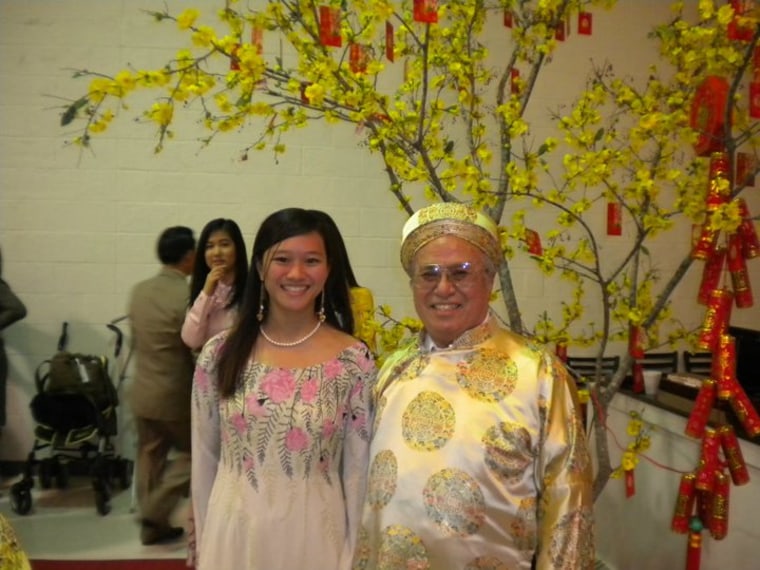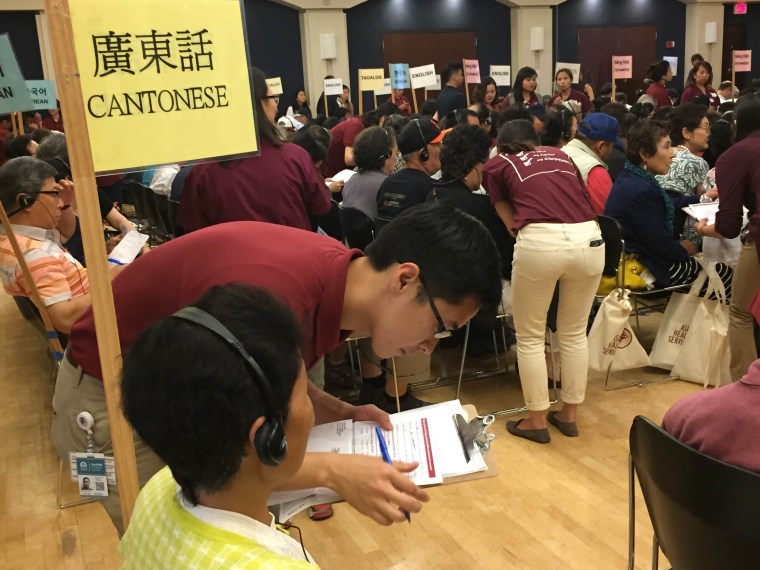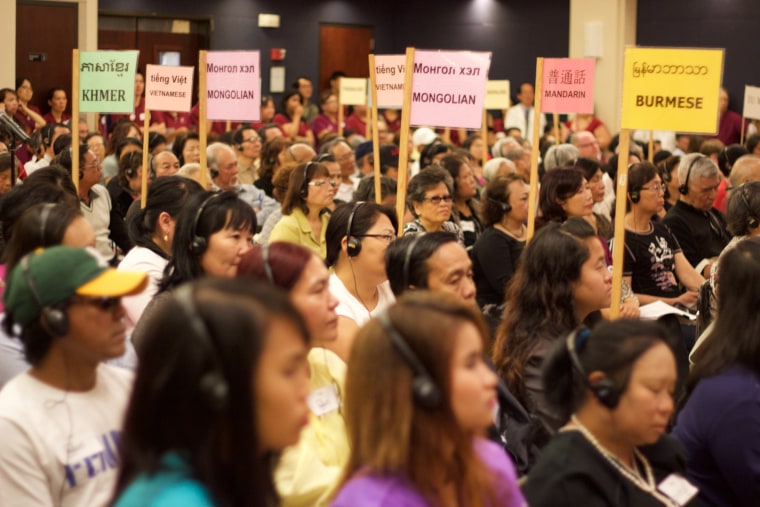Cathy Phan remembers the story her grandfather told her about the communists barging into his home in Saigon during the Vietnam War. Guns in hand, the men smashed everything in sight as they searched for money and jewelry. When they eventually found some cash hidden inside an elephant statue they had broken, the men continued tearing apart the walls and floors, believing they would find more.
That experience was seared in the memory of her grandfather, Phuong Nguyen, a South Vietnamese soldier who lost his right leg after stepping on a land mine, who immigrated to the United States with his wife and daughter as refugees in 1988, and who became a naturalized U.S. citizen five years later, voting in every presidential election since 1996.
RELATED: New Report Finds Immigrants Fuel Growth of Asian Voter Population
For Phan, the health initiatives project manager at HOPE Clinic in Houston, Texas, her grandfather’s story is also a reminder of the potency of democracy and the importance of helping Asian Americans, Native Hawaiians, and Pacific Islanders register to vote ahead of this year’s local and presidential elections.
“When you serve such a large immigrant community, many of them don’t recognize the power that they have,” Phan, 24, told NBC News. “And when you can pull together this collective group of people to present this voice, it can make a very big difference.”

HOPE Clinic is one of 14 centers across the country participating in a voter-registration campaign called “My Health, My Vote” (also, #MyHealthMyVote), to be launched Thursday by the Association of Asian Pacific Community Health Organizations (AAPCHO), of which HOPE Clinic is a member.
The non-partisan effort, aimed at low-income patients and those with limited English proficiency, includes voter registration posters, buttons, personal stories, and social media tools in English as well as Chinese, Chuukese (spoken in Micronesia), Korean, Tagalog, and Vietnamese. In 2014, AAPCHO has treated nearly a half million patients in 29 centers from Hawaii to New York.
“Health centers have always played a key part in civic engagement, mobilizing individuals to create change and improve the health of their communities, and are best poised to reach this overlooked but increasingly influential part of the electorate,” executive director Jeffrey Caballero said in a statement.
“Many people may think, 'Well I’m only one person, what difference is it going to make,' But if you have 100,000 people coming together, now that one vote is no longer one vote. It’s 100,000 votes.”
Both Democrats and Republicans have been pursuing the Asian American, Pacific Islander, and Native Hawaiian vote with keen interest this election season, realizing the strength of a voter bloc that is expected to double to 12.2 million by 2040, according to a 2015 report from the UCLA Center for the Study of Inequality and Asian Pacific American Institute for Congressional Studies. But while inroads have been made in registering and urging voters to participate in primaries, caucuses, and the general election, advocates say more outreach needs to be done.
In 2012, when the last presidential election was held, roughly three in five eligible Asian-American voters were registered to vote, according to the U.S. Census. Among those, one in two reported actually heading to the polls on Election Day, the data shows.
Asians, accounting for 3.8 percent of eligible voters nationwide that year according to data from APIA Vote, ranked lowest among whites, blacks, and Hispanics in percentages of registered voters and those who cast ballots, the census reported.

For HOPE Clinic in Houston, where six percent of the population is Asian, the goal is to sign up at least 500 voters by Oct. 11, the last day to register in Texas, Phan said. With more than a hundred employees who speak 14 languages, HOPE Clinic has received permission from Fort Bend County to deputize some of its staff to help patients, many of them Vietnamese and Chinese, with filling out voter registration forms, an initiative the clinic began in January, Phan said.
So far, Phan and her staff are almost halfway to meeting their goal, she said.
“Many people may think, 'Well I’m only one person, what difference is it going to make,'” Phan said. “But if you have 100,000 people coming together, now that one vote is no longer one vote. It’s 100,000 votes.”
“For my grandfather, this is something that he’s grasped from the very beginning. He understood the importance of it — and that you can make a difference simply by going to the polls.”
Outreach doesn’t stop with voter registration, Phan added. HOPE Clinic has also partnered with OCA Greater Houston to provide forums for patients to understand how to apply for citizenship, she said.
Texas, according to the Census, has the third-largest Asian-American population in the U.S., behind California and New York, underscoring the importance of such initiatives. Between 2000 and 2010, the Asian population in the Lone Star State nearly doubled to 1.1 million, the census reported, with its citizen voting age population increasing by 60 percent, according to APIA Vote.
“Many of [our] patients, while they just came over and are not currently eligible to vote because they’re not citizens, there are many more that are eligible who just are not aware of their rights,” Phan said.
These days, Phan’s grandfather’s own health has been failing, so he likely won’t be strong enough to make it to the polls to vote come November, Phan said. But illness, she added, is not enough to thwart an 86-year-old who fought for freedom in his native Vietnam, who left a war-torn country for a new life in America, who still sees voting as an equalizing force in a democratic nation.
“For my grandfather, this is something that he’s grasped from the very beginning,” said Phan, adding that Nguyen will vote instead by absentee ballot. “He understood the importance of it — and that you can make a difference simply by going to the polls.”
Follow NBC Asian America on Facebook, Twitter, Instagram, and Tumblr.
